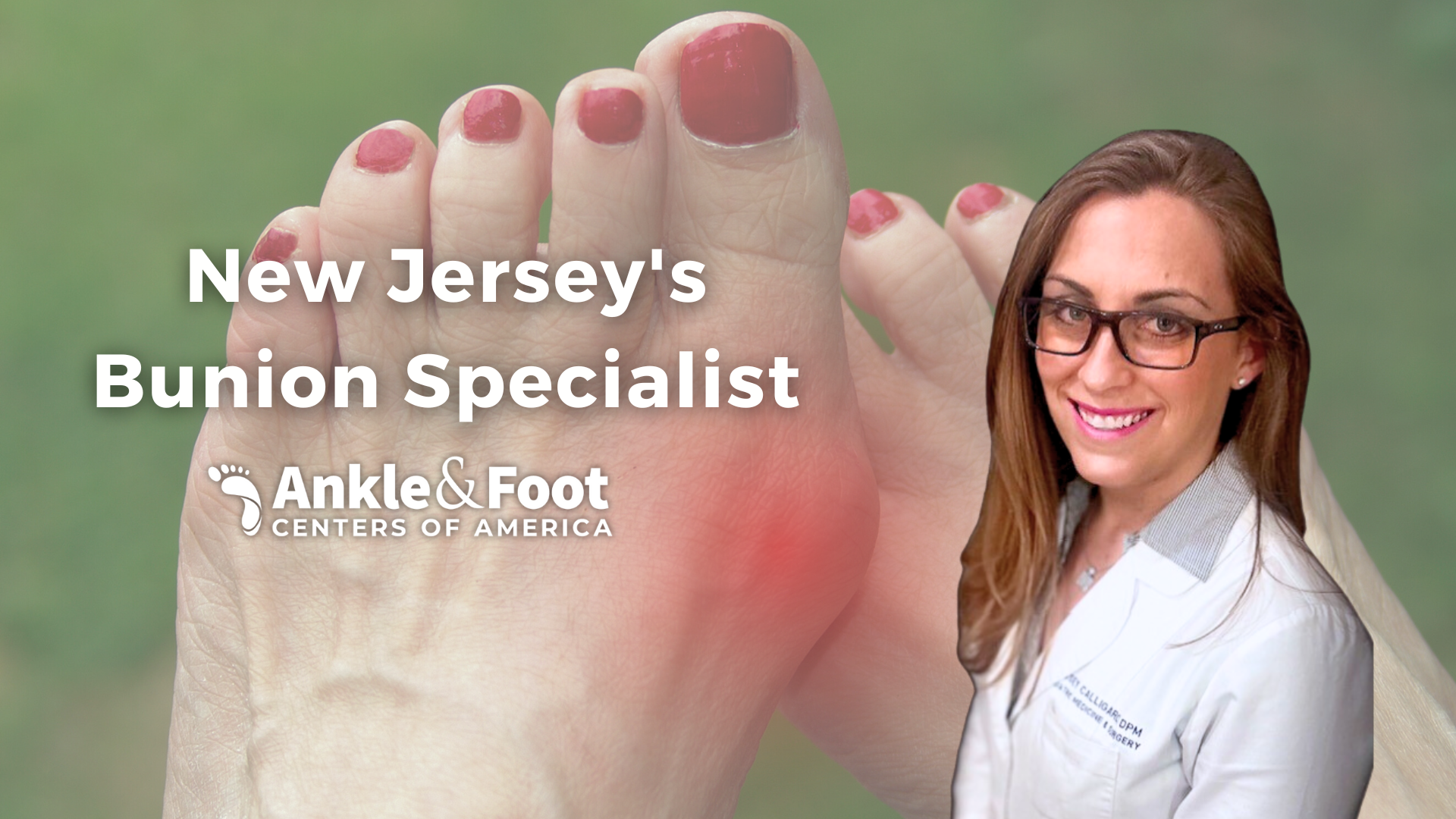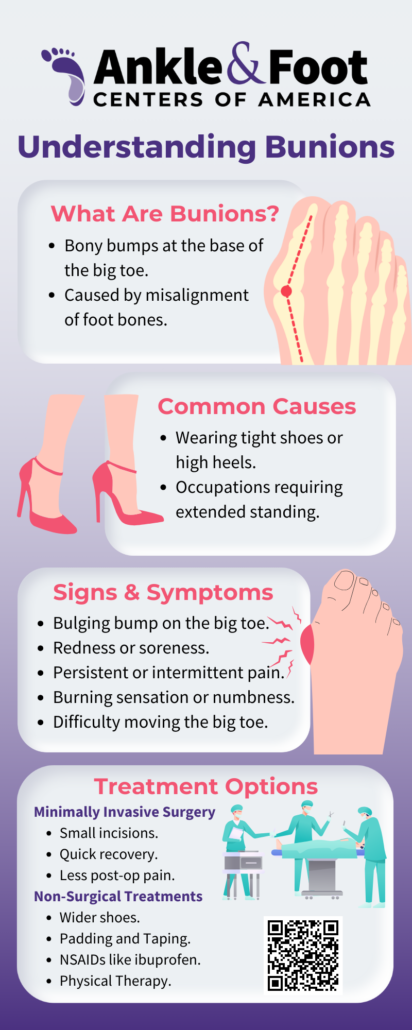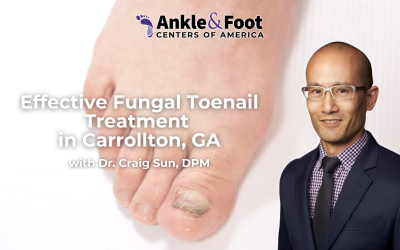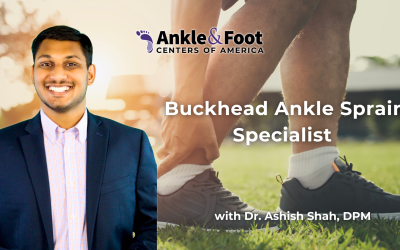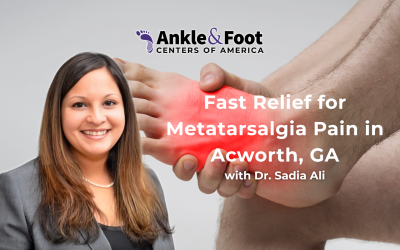Bunions, those painful bumps that can form at the base of your big toe, are more than just a minor inconvenience. They can significantly impact your quality of life, making every step a painful ordeal. In the state of New Jersey, and particularly in Wayne, we’ve noticed an increasing number of patients seeking help for this condition.
Understanding the importance of professional help for bunions is the first step towards relief. In Wayne, NJ, we have a number of highly skilled bunion specialists who can provide the necessary treatment to alleviate your discomfort and improve your foot health.
Table of Contents
The Prevalence of Bunions in New Jersey
Bunions are a common foot problem, not just in the United States, but also right here in New Jersey. The exact number of people suffering from bunions in the state is hard to pin down, but as a bunion specialist in Wayne, NJ, the steady stream of patients seeking help for this condition is a clear indication of its prevalence.
The Importance of Seeking Professional Help
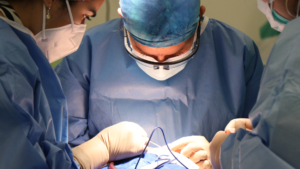 Ignoring a bunion won’t make it go away. In fact, without proper treatment, the condition can worsen over time, leading to further pain and complications. That’s why it’s crucial for residents of Wayne, NJ, to seek professional help at the first sign of a bunion. A bunionectomy specialist can provide an accurate diagnosis and recommend the most effective treatment options for your specific case.
Ignoring a bunion won’t make it go away. In fact, without proper treatment, the condition can worsen over time, leading to further pain and complications. That’s why it’s crucial for residents of Wayne, NJ, to seek professional help at the first sign of a bunion. A bunionectomy specialist can provide an accurate diagnosis and recommend the most effective treatment options for your specific case.
Understanding Bunions in New Jersey
Before we delve into the specifics of bunion treatment, it’s important to understand what bunions are, why they occur, and the symptoms they present. This knowledge can help New Jersey residents identify the condition early and seek appropriate treatment.
What are Bunions?
Bunions are bony bumps that form on the joint at the base of your big toe. They occur when some of the bones in the front part of your foot move out of place. This causes the tip of your big toe to get pulled toward the smaller toes, and the joint at the base of your big toe sticks out. The skin over the bunion might be red and sore.
Causes of Bunions Specific to Lifestyle Factors in Wayne, NJ
While bunions can be caused by various factors such as genetic predisposition and certain types of arthritis, lifestyle factors often play a significant role. In Wayne, NJ, like many other urban areas, certain lifestyle factors can contribute to the development of bunions.
One of the most common causes is wearing tight, narrow shoes or high heels. These types of footwear can crowd the toes and put pressure on the joint, leading to the formation of a bunion. Additionally, occupations that require a lot of standing or walking can increase the risk of bunions.
Symptoms of Bunions New Jersey Residents Should Be Aware Of
The most obvious symptom of a bunion is the bulging bump on the outside of the base of your big toe. However, there are several other symptoms associated with this condition. These include:
- Swelling, redness, or soreness around your big toe joint
- Persistent or intermittent pain
- A burning sensation
- Possible numbness
- Difficulty moving your big toe
If you’re a resident of New Jersey and you notice any of these symptoms, it’s important to consult with a bunion specialist for an accurate diagnosis and treatment plan.
The Role of a Podiatrist in New Jersey
When it comes to treating bunions, the expertise of a board-certified podiatrist is invaluable. These professionals have the knowledge and experience to diagnose and treat bunions effectively. For residents of New Jersey, understanding the role of a bunion specialist can help in making informed decisions about their foot health.
What Does a Bunion Specialist Do?
A bunion specialist, often a podiatrist or orthopedic surgeon, is a healthcare professional who specializes in diagnosing and treating conditions affecting the foot and ankle, including bunions. They have a deep understanding of the biomechanics of the foot and the various factors that can lead to the development of a bunion.
The specialist will begin by conducting a thorough examination of your foot and may order imaging tests, such as X-rays, to determine the severity of the bunion. Based on the findings, they will develop a personalized treatment plan that may include lifestyle modifications, physical therapy, medication, or in some cases, surgery.
Why See a Bunion Specialist in Wayne, NJ?
If you’re dealing with a bunion in Wayne, NJ, you might wonder why you should see a bunion specialist instead of a general practitioner. The answer lies in the specialist’s extensive training and experience in dealing with foot conditions.
A bunion specialist has a deep understanding of the complex structure of the foot and the various treatment options for bunions. They can provide a comprehensive treatment plan that addresses not only the symptoms but also the underlying cause of the bunion. Furthermore, if surgery is required, a bunion specialist has the necessary skills to perform the procedure and manage the post-operative care.

Treatment Options for Bunions in New Jersey
Bunions can cause significant discomfort and interfere with daily activities. However, there are several treatment options available that can help alleviate the pain and prevent further progression of the condition. In New Jersey, bunion specialists offer a range of treatments from non-surgical methods to minimally invasive surgery.
Non-Surgical Treatments for Bunions in New Jersey
Non-surgical treatments are often the first line of defense against bunions. These methods aim to alleviate the pain and discomfort caused by the bunion and prevent further progression of the condition. They include:
- Lifestyle modifications: This may involve wearing shoes with a wider toe box to reduce pressure on the bunion. Avoiding activities that cause bunion pain can also help.
- Padding and Taping: Padding the bunion can help minimize pain and allow you to continue your normal activities. Taping the foot in a normal position can reduce stress on the bunion and alleviate discomfort.
- Medication: Nonsteroidal anti-inflammatory drugs (NSAIDs), such as ibuprofen, can help reduce pain and inflammation.
- Physical Therapy: Certain exercises may help maintain joint mobility and prevent stiffness. Physical therapy can also strengthen the muscles of the foot and leg, improving your balance and foot function.
Minimally Invasive Bunion Surgery in Wayne, NJ
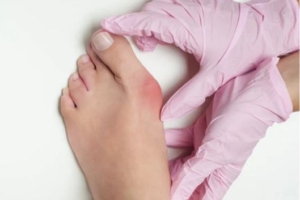 If non-surgical treatments do not provide sufficient relief, or if the bunion is severe, bunion removal surgery may be recommended. In New Jersey, many podiatrists are expertly skilled in minimally invasive bunion surgery. This procedure involves making small incisions to correct the alignment of the bones of the foot. It offers several advantages over traditional surgery, including less post-operative pain, reduced scarring, and faster recovery times.
If non-surgical treatments do not provide sufficient relief, or if the bunion is severe, bunion removal surgery may be recommended. In New Jersey, many podiatrists are expertly skilled in minimally invasive bunion surgery. This procedure involves making small incisions to correct the alignment of the bones of the foot. It offers several advantages over traditional surgery, including less post-operative pain, reduced scarring, and faster recovery times.
What New Jersey Residents Can Expect from Bunion Surgery
Bunion surgery is typically performed as an outpatient procedure, meaning you can go home the same day. The specific techniques used during surgery will depend on the severity and location of the bunion. After surgery, you will need to wear a surgical boot or cast to protect your foot and aid in healing.
Recovery times vary, but most people can start walking on their foot immediately after surgery using a surgical boot. Full recovery can take several weeks to months. Physical therapy may be recommended to restore strength and range of motion to your foot.
Remember, every case is unique, and the best way to understand what treatment is right for you is to consult with a bunion doctor in Wayne, NJ. They can provide a comprehensive evaluation and guide you through the treatment process.
The Cost of Bunion Treatment in New Jersey
Understanding the costs associated with bunion treatment is an important aspect of your healthcare journey. In New Jersey, the cost of bunion treatment can vary widely depending on the severity of the condition and the type of treatment required.
Overview of the Costs Associated with Bunion Treatment
The cost of bunion treatment can range from relatively low for non-surgical treatments to significantly higher for surgical interventions. Non-surgical treatments such as medication, physical therapy, and the use of orthotic devices are generally more affordable but may require ongoing costs over time.
Surgical treatments, on the other hand, can be more costly upfront. The total cost of bunion surgery can include various factors such as the surgeon’s fee, hospital or surgical facility costs, anesthesia fees, and any additional treatments or tests required.
Insurance Coverage for Bunion Treatment
Most health insurance plans will cover a portion of the cost of bunion treatment, including surgery. However, the exact coverage can vary depending on your specific insurance plan. It’s important to check with your insurance provider to understand what is covered and what out-of-pocket costs you may be responsible for.
In Wayne, NJ, our bunion specialists and administrative staff can assist you in understanding your insurance coverage and provide an estimate of any potential costs. We believe in transparency and will work with you to ensure you understand all aspects of your treatment, including cost.
Remember, while cost is an important consideration, it should not be the only factor in choosing your bunion treatment. The goal is to alleviate your pain and improve your foot health, and sometimes, the most effective treatment may require a higher investment.
Frequently Asked Questions
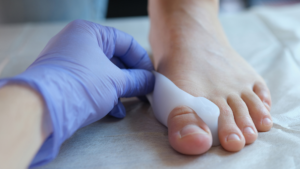 Bunions are a common foot condition, and many people have questions about their causes, symptoms, and treatment options. Here are some of the most frequently asked questions about bunions in New Jersey.
Bunions are a common foot condition, and many people have questions about their causes, symptoms, and treatment options. Here are some of the most frequently asked questions about bunions in New Jersey.
When Should I See a Podiatrist for My Bunions in New Jersey?
If you notice a bump on the base of your big toe, experience persistent foot pain, or have difficulty moving your toe or foot, it’s time to see a podiatrist. Early intervention can prevent the condition from worsening and help alleviate your symptoms.
How Can I Treat Bunions Without Surgery in Wayne, NJ?
Non-surgical treatments for bunions include wearing comfortable shoes with a wide toe box, using padded shoe inserts, taking over-the-counter pain relievers, and applying ice to the bunion to reduce swelling. Physical therapy exercises can also help maintain joint mobility and prevent stiffness.
How Much Does Bunion Surgery Cost in New Jersey?
The cost of bunion surgery in New Jersey can vary widely depending on the complexity of the procedure, the surgeon’s experience, and your health insurance coverage. It’s best to consult your local foot doctor to get an accurate estimate based on your specific condition.
Should I Have My Bunions Fixed?
If your bunions are causing significant pain, affecting your mobility, or interfering with your daily activities, it may be time to consider having them fixed. A qualified podiatrist, can provide a comprehensive evaluation and recommend the best course of treatment for your condition.
What is Minimally Invasive Bunion Surgery in New Jersey?
Minimally invasive bunion surgery in NJ is a procedure that uses small incisions to correct the alignment of the bones in your foot. This technique results in less tissue damage, less post-operative pain, and a faster recovery time compared to traditional open surgery. This procedure is available in New Jersey and can be an excellent option for suitable candidates.
Choosing a Bunion Specialist in New Jersey
Selecting the right bunion specialist is a crucial step in your journey towards pain-free feet. In New Jersey, there are several factors to consider when choosing a bunion specialist.
What to Look for in a Bunion Specialist in New Jersey
When choosing a bunion specialist, consider their qualifications, experience, and approach to treatment. The specialist should be board-certified and have extensive experience in treating bunions. They should also stay updated with the latest advancements in bunion treatment to ensure that patients receive the most effective and least invasive treatment options available.
Additionally, consider the specialist’s approach to treatment. They should provide a comprehensive evaluation and personalized treatment plan that addresses not only the symptoms but also the underlying cause of the bunion. They should also be able to explain all aspects of your treatment, including the expected outcomes, potential risks, and costs.
The Benefits of Choosing a Bunion Specialist in Wayne, NJ
Choosing a halux valgus specialist in Wayne, NJ, comes with several benefits. Firstly, you’ll have access to top-quality care from specialists who are familiar with the unique needs of the local community.
Secondly, local foot doctor can provide more personalized care. They can spend more time with you during appointments, answer all your questions, and provide tailored treatment plans.
Lastly, choosing a local podiatrist can also make your treatment more convenient. You won’t have to travel far for appointments, which can make the entire process less stressful and more manageable.
Remember, the goal is to find a bunion expert who you feel comfortable with and who can provide the best possible care for your condition. Don’t hesitate to ask questions and take the time to find the right specialist for you.
Conclusion
Bunions can significantly impact your quality of life, causing discomfort and pain that can interfere with your daily activities. However, with the right treatment, it’s possible to alleviate these symptoms and improve your foot health.
Recap of the Importance of Professional Treatment for Bunions
Professional treatment for bunions is crucial. Whether you opt for non-surgical treatments or require surgery, a bunion specialist can provide the necessary care to alleviate your symptoms and prevent further progression of the condition. In New Jersey, we have a highly skilled bunion specialist who can provide the necessary treatment to alleviate your discomfort and improve your foot health.
Seek Treatment in New Jersey
If you’re a resident of New Jersey and are suffering from bunions, don’t hesitate to seek professional help. Early intervention can prevent the condition from worsening and help you get back to your normal activities without pain. Remember, living with bunions doesn’t have to be a life sentence – with the right treatment, you can regain your mobility and enjoy life without foot pain.
In Wayne, NJ, our bunion specialists are committed to providing the highest level of care. They stay updated with the latest advancements in bunion treatment to ensure that patients receive the most effective and least invasive treatment options available. Don’t let bunions hold you back – reach out to our bunion specialist today!

